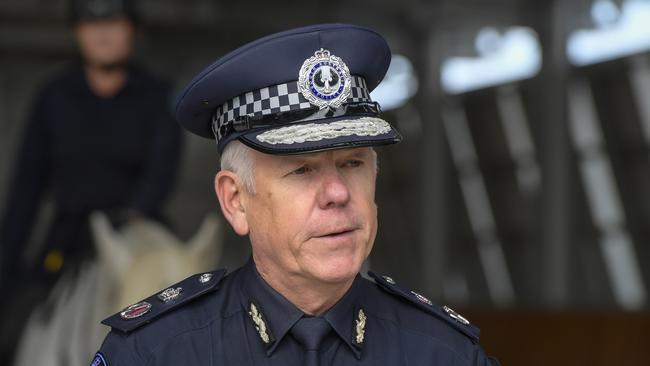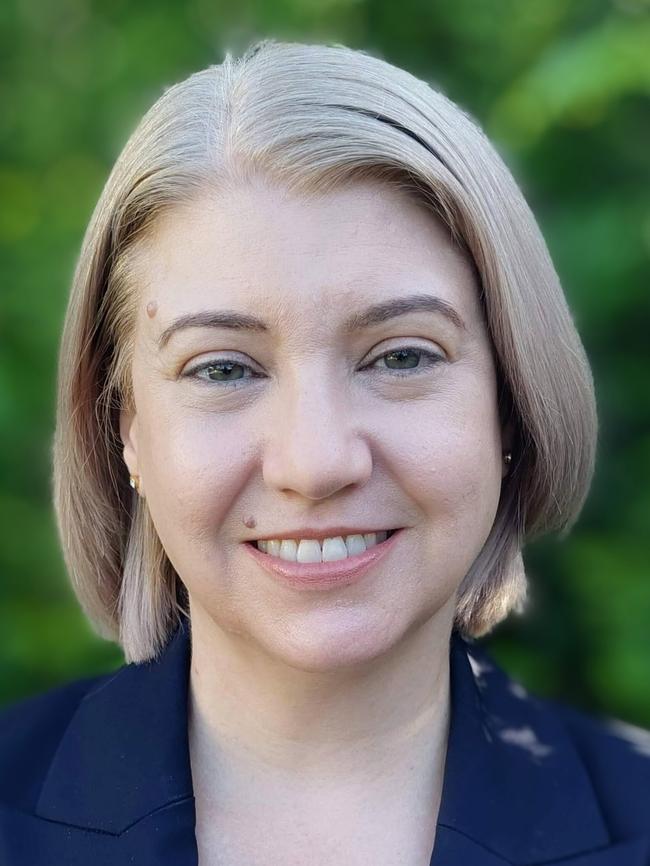Commissioner Grant Stevens slams ICAC breakdown as new laws leaves SA Police swamped in corruption claims
Changes to corruption watchdog laws have driven fears criminals could now be going unpunished as the system buckles.

SA News
Don't miss out on the headlines from SA News. Followed categories will be added to My News.
Corruption may be going unpunished because SA Police is unable to deal with surging demand, while cases are dragging out so long that they risk being dropped “because evidence is lost or witnesses become uncooperative,” a state parliamentary inquiry has heard.
Police Commissioner Grant Stevens and new ICAC Commissioner Emma Townsend have laid bare the impact of the 2021 changes to the ICAC legislation to parliament’s Crime and Public Integrity Committee.
The controversial amendments to the anti-corruption legislation restricted what ICAC could investigate, leading to more matters being referred to SA Police.
The changes also prohibited the ICAC from directly referring its investigations to the Director of Public Prosecutions.
Instead, the ICAC must refer matters for prosecution to SA Police, who then do their own investigation to determine if the matter will be referred to the DPP.
This has resulted in a doubling-up of investigations.
In a written submission to the inquiry, Mr Stevens said the mandatory referrals to the force’s Anti-Corruption Section “imposed significant demands on SAPOL resources” and as a consequence it has had to fund five full-time equivalent staff, at a cost of $674,000 a year, to deal with the workload.
He also implied that the ACS was not investigating matters it would previously have looked into as a way of decreasing the task load.
“The systemic demand caused by the inability of the ICAC to carry out their function is causing increased workload pressures on ACS, transferring the investigational risk management to SAPOL and limiting the capability of ACS to comprehensively investigate,” he wrote.
“It forces ACS to raise the threshold for assessing referrals for further investigations, creating a risk to the integrity of the South Australian corruption management system holistically.”
Mr Stevens said the number of matters the ICAC refers to the ACS for investigation was expected to increase by 260 per cent this financial year, compared to 2023/24.
“SAPOL resourcing can’t accommodate the increased demand on services under the current model, nor should it be responsible for propping up the corruption system as a demand management tool,” he wrote.
Mr Stevens urged the committee to consider amending the Act to allow the ICAC to directly refer cases to the DPP.
He also suggested a number of cases that were referred to SAPOL would be better handled by the ICAC because it had greater powers to conduct corruption investigations.

Meanwhile, new anti-corruption commissioner Emma Townsend has appeared before the committee to discuss the legislation.
Among the matters she raised was the amount of time corruption cases were taking to complete under the current system, from the initial complaint to an outcome.
She said it could take almost five years to finalise a matter, which could have a detrimental effect on cases.
“Firstly, as time passes the memories of witnesses fade and the quality of evidence deteriorates,” she said.
“Whistleblowers and other important witnesses may lose faith in the process and become less willing to participate.
“This all means that the prosecution’s ability to put the best evidence and most relevant evidence before a court may be reduced.”
Ms Townsend also noted it could also “create an unfairness to the accused person”.
She also said the delays “must have consequences for the public’s confidence in the commission and the criminal justice system”.
“There is the prospect of significant delay, accompanied by the possibility that prosecutions are unable to be continued because evidence is lost or witnesses become uncooperative,” she said.
Ms Townsend said she would be working with SA Police to try to reduce the time frames.
Parliament’s Crime and Public Integrity Committee launched an investigation into the operation of the ICAC Act in November last year.
More Coverage
Originally published as Commissioner Grant Stevens slams ICAC breakdown as new laws leaves SA Police swamped in corruption claims





